Zedex P Cough Syrup 60 ml
MRP ₹112.5
(Inclusive of all Taxes)
₹16.9 Cashback (15%)
Provide Delivery Location
Online payment accepted
 Prescription drug
Prescription drugWhats That
Manufacturer/Marketer :
Consume Type :
Expires on or after :
Return Policy :
About Zedex P Cough Syrup
Zedex P Cough Syrup is used to treat symptoms of the common cold and allergies (allergic rhinitis). The common cold is a respiratory illness affecting the nose and throat. It is mostly caused by viruses known as “rhinoviruses”. The virus enters the body through the nose, mouth, or eyes and spreads easily through droplets in the air when the person who is sick sneezes, coughs, or talks. Allergies are caused due to the 'allergens' that cause 'histamine' to release in the blood, thereby causing a stuffy nose, watery eyes, itching nose/throat, etc.
Zedex P Cough Syrup is a combination of five drugs, namely: Paracetamol, Phenylephrine hydrochloride, Chlorpheniramine maleate, Sodium citrate, and menthol. Paracetamol works by inhibiting the production of certain chemical messengers in the brain known as prostaglandins that are responsible for pain and fever. Phenylephrine hydrochloride works by contracting and narrowing the blood vessels. Chlorpheniramine maleate works by blocking the action of histamine, a substance responsible for causing allergic reactions. Sodium citrate works by thinning and loosening phlegm (mucus) in the lungs, windpipe, and nose. Menthol relieves minor irritation in the throat and provides a cooling sensation.
Take Zedex P Cough Syrup as advised by your doctor. Some people may experience drowsiness, nervousness, mild headache, dizziness, insomnia (difficulty in falling or staying asleep), blurred vision, nausea, vomiting, constipation, and dry mouth. Most of these side effects of Zedex P Cough Syrup do not require medical attention and gradually resolve over time. However, if the side effects persist or worsen, please consult your doctor.
If you are allergic to Zedex P Cough Syrup or any other medicines, please tell your doctor. If you are pregnant or breastfeeding, it is advised to inform your doctor before taking Zedex P Cough Syrup. Zedex P Cough Syrup is not recommended for children below 2 years of age. Please do not take more than the prescribed dose of Zedex P Cough Syrup as it may cause liver damage and severe adverse effects. If you have high blood pressure, diabetes, glaucoma, hyperthyroidism (overactive thyroid), chronic bronchitis, asthma, chronic obstructive pulmonary disease (COPD), blockage in the stomach or intestines, enlarged prostate gland, pheochromocytoma (tumour in the adrenal glands), kidney, liver, heart or urinary problems, inform your doctor before taking Zedex P Cough Syrup.
Uses of Zedex P Cough Syrup
Directions for Use
Key Benefits
Zedex P Cough Syrup contains Paracetamol, Phenylephrine hydrochloride, Chlorpheniramine maleate, Sodium citrate, and menthol used to treat symptoms of the common cold and allergies. Paracetamol is an analgesic (relieves pain) and antipyretic (reduces fever) that works by inhibiting the production of certain chemical messengers in the brain known as prostaglandins that are responsible for pain and fever. Phenylephrine hydrochloride is a decongestant that works by contracting and narrowing the blood vessels. Thereby, providing relief from congestion and decreasing mucus production. Chlorpheniramine maleate is an anti-allergic drug that blocks the action of histamine, a substance responsible for causing allergic reactions. Sodium citrate is a mucolytic agent (cough/sputum thinner) that works by thinning and loosening phlegm (mucus) in the lungs, windpipe, and nose. Thereby, helps to cough out easily. Menthol is a cooling agent that relieves minor irritation in the throat and provides a cooling sensation. Together Zedex P Cough Syrup helps relieve symptoms of a common cold like headache, fever, and allergies like stuffy nose, watery eyes, itching nose/throat, etc.
Storage
- Inform Your Doctor: Notify your doctor immediately about your diarrhoea symptoms. This allows them to adjust your medication or provide guidance on managing side effects.
- Stay Hydrated: Drink plenty of fluids to replace lost water and electrolytes. Choose water, clear broth, and electrolyte-rich drinks. Avoid carbonated or caffeinated beverages to effectively rehydrate your body.
- Follow a Bland Diet: Eat easy-to-digest foods to help firm up your stool and settle your stomach. Try incorporating bananas, rice, applesauce, toast, plain crackers, and boiled vegetables into your diet.
- Avoid Trigger Foods: Steer clear of foods that can worsen diarrhoea, such as spicy, fatty, or greasy foods, high-fibre foods, and dairy products (especially if you're lactose intolerant).
- Practice Good Hygiene: Maintain good hygiene to prevent the spread of infection. To stay healthy, wash your hands frequently, clean and disinfect surfaces regularly, and avoid exchanging personal belongings with others.
- Take Anti-Diarrheal Medications: If your doctor advises, anti-diarrheal medications such as loperamide might help manage diarrhoea symptoms. Always follow your doctor's directions.
- Keep track of your diarrhoea symptoms. If they don't get better or worse or are accompanied by severe stomach pain, blood, or dehydration signs (like extreme thirst or dark urine), seek medical help.
- Get urgent medical help if you notice abnormal lung sounds with symptoms, like bluish skin, flare-ups of your nostrils, or trouble breathing.
- If you have asthma or allergies, managing these conditions with inhalers and bronchodilators can help prevent abnormal lung sounds.
- Infections may need antibiotics or breathing therapy to help open your airways and make breathing easier.
- Wash your hands regularly and take other steps to avoid getting sick and spreading germs.
- Doing breathing exercises can help improve your lung function and make breathing easier.
- Contact your physician right away if you suffer from hypoxia symptoms including chest pain, disorientation, or shortness of breath.
- Your doctor can monitor your progress and modify treatment programs with the help of routine follow-up sessions.
- Omega-3 supplements may support the transport of oxygen to tissues.
- Regular exercise improves cardiovascular health and boosts oxygen delivery to tissues.
- Quit smoking, as it can worsen hypoxia.
Drug Warnings
If you are allergic to Zedex P Cough Syrup or any other medicines, please tell your doctor. If you are pregnant or breastfeeding, it is advised to inform your doctor before taking Zedex P Cough Syrup. Zedex P Cough Syrup is not recommended for children below 2 years of age. Please do not take more than the prescribed dose of Zedex P Cough Syrup as it may cause liver damage and severe adverse effects. Avoid using Zedex P Cough Syrup if you have taken medicines such as linezolid, phenelzine, selegiline, rasagiline, isocarboxazid, tranylcypromine, and methylene blue injection in the past 14 days. If you have high blood pressure, diabetes, glaucoma, hyperthyroidism (overactive thyroid), chronic bronchitis, asthma, chronic obstructive pulmonary disease (COPD), blockage in the stomach or intestines, enlarged prostate gland, pheochromocytoma (tumour in the adrenal glands), kidney, liver, heart or urinary problems, inform your doctor before taking Zedex P Cough Syrup.
Drug-Drug Interactions
Drug-Drug Interactions
Login/Sign Up
Taking Zedex P Cough Syrup 60 ml with Propofol may lead to increased levels of Zedex P Cough Syrup 60 ml leading to side effects like high blood pressure.
How to manage the interaction:
Taking Zedex P Cough Syrup 60 ml with Propofol is not recommended, but it can be taken if prescribed by the doctor. Do not discontinue the medications without consulting a doctor.
Taking Furazolidone with Zedex P Cough Syrup 60 ml can cause an increase in high blood pressure.
How to manage the interaction:
Taking Furazolidone with Zedex P Cough Syrup 60 ml is not recommended, it can be taken if prescribed by the doctor. However, if you experience sudden and severe headache, blurred vision, confusion, seizures, chest pain, nausea or vomiting, sweating, lightheadedness, fainting, sudden numbness or weakness (especially on one side of the body), speech difficulties, fever, consult the doctor immediately. It is advised to use Zedex P Cough Syrup 60 ml only after 14 days of stopping Furazolidone.
Co-administration of Zedex P Cough Syrup 60 ml with Sevoflurane can increase the levels of Zedex P Cough Syrup 60 ml and lead to side effects.
How to manage the interaction:
Taking Zedex P Cough Syrup 60 ml with Sevoflurane is not recommended, it can be taken if prescribed by the doctor. Do not discontinue the medications without consulting a doctor.
Taking Tranylcypromine with Zedex P Cough Syrup 60 ml can increase the risk of high blood pressure.
How to manage the interaction:
Taking Tranylcypromine with Zedex P Cough Syrup 60 ml is not recommended, but can be taken together if prescribed by a doctor. However, consult a doctor if you experience severe headache, blurred vision, confusion, seizures, chest pain, nausea or vomiting, sudden numbness or weakness (especially on one side of the body), speech difficulties, fever, sweating, lightheadedness, and fainting Do not discontinue any medications without consulting a doctor.
Co-administration of Selegiline with Zedex P Cough Syrup 60 ml together can raise blood pressure.
How to manage the interaction:
Taking Selegiline with Zedex P Cough Syrup 60 ml is not recommended, it can be taken together if prescribed by a doctor. However, consult a doctor immediately if you experience any symptoms such as severe headache, blurred vision, confusion, fits, chest pain, nausea or vomiting, sudden numbness or weakness (especially on one side of the body), speech difficulties, fever, sweating, lightheadedness, and/or fainting Do not discontinue any medications without consulting a doctor.
Taking Zedex P Cough Syrup 60 ml and Potassium citrate (in tablet or capsule form) together can increase the risk of stomach ulcers, bleeding, and gastrointestinal injury.
How to manage the interaction:
Taking Zedex P Cough Syrup 60 ml with Potassium citrate is not recommended as it can lead to an interaction, it can be taken if prescribed by the doctor. However, if you experience any symptoms such as severe stomach pain, bloating, lightheadedness or dizziness, nausea, vomiting (especially with blood), decreased hunger, or dark, tarry stools, consult the doctor immediately. Do not discontinue any medications without a doctor's advice.
Taking Zedex P Cough Syrup 60 ml and Potassium chloride (in tablet or capsule form) together can increase the risk of stomach ulcers, bleeding, and gastrointestinal injury.
How to manage the interaction:
Taking Zedex P Cough Syrup 60 ml with Potassium chloride it not recommended as it can lead to an interaction, it can be taken if your doctor has prescribed it. However, if you experience any symptoms such as severe stomach pain, bloating, lightheadedness or dizziness, nausea, vomiting (especially with blood), decreased hunger, or dark, tarry stools, consult the doctor. Do not discontinue any medications without a doctor's advice.
Co-administration of Topiramate can cause increased body temperature and decreased sweating, and these effects may be worsened when combined with medications like Zedex P Cough Syrup 60 ml.
How to manage the interaction:
Although there is a possible interaction between Zedex P Cough Syrup 60 ml and Topiramate, you can take these medicines together if prescribed by your doctor. However, if you experience any unusual symptoms, consult the doctor. Do not discontinue any medications without consulting a doctor.
Co-administration of Zedex P Cough Syrup 60 ml with Halothane may increase the risk of an irregular heart rhythm.
How to manage the interaction:
Although taking Zedex P Cough Syrup 60 ml with Halothane together can result in an interaction, it can be taken if a doctor has prescribed it. However, if you experience any symptoms like lightheadedness, fainting, irregular heart beat, dizziness, consult the doctor. Do not discontinue any medications without a doctor's advice.
Co-administration of Nortriptyline with Zedex P Cough Syrup 60 ml may lead to side effects like increased blood pressure.
How to manage the interaction:
Although taking Nortriptyline and Zedex P Cough Syrup 60 ml together can result in an interaction, it can be taken if a doctor has prescribed it. Regular monitoring of blood pressure is advised. Do not discontinue any medications without a doctor's advice.
Drug-Food Interactions
Drug-Food Interactions
Login/Sign Up
Diet & Lifestyle Advise
- Wash your hands with soap and water regularly to prevent the spread of germs.
- Eat plenty of foods rich in good bacteria like yoghurt to improve overall health.
- Drink plenty of fluids to avoid dehydration.
- Gargle with salt water for relief from sore throat.
- Avoid consumption of alcohol with Zedex P Cough Syrup as it may cause tiredness, drowsiness, or lack of concentration.
Side Effects of Zedex P Cough Syrup
- Drowsiness
- Nervousness
- Mild headache
- Dizziness
- Insomnia (difficulty in falling or staying asleep)
- Blurred vision
- Nausea
- Vomiting
- Constipation
- Dry mouth
Habit Forming
Therapeutic Class
All Substitutes & Brand Comparisons
RX
Sudin Kid Plus Syrup 60 ml
Group Pharmaceuticals Ltd
₹65.5
(₹0.98/ 1ml)
42% CHEAPERRX
Alex P Syrup 60 ml
Glenmark Pharmaceuticals Ltd
₹107.5
(₹1.61/ 1ml)
4% CHEAPER
Author Details
We provide you with authentic, trustworthy and relevant information
Drug-Diseases Interactions
Drug-Diseases Interactions
Login/Sign Up
FAQs
Drug-Drug Interactions Checker List
- DIPHENHYDRAMINE
- CETIRIZINE
- DULOXETINE
- ESCITALOPRAM
- CLONAZEPAM
- ALPRAZOLAM
- CYCLOBENZAPRINE
- DEXTROMETHORPHAN
- ALBUTEROL
- RAMELTEON
- PARACETAMOL
- IBUPROFEN
Special Advise
- Do not give Zedex P Cough Syrup to children below 2 years of age.
- Do not take Zedex P Cough Syrup for longer than 7 days in a row (for adults) unless advised by the doctor.
Disease/Condition Glossary
Common cold: The common cold is an infection caused by the virus, mainly known as ‘rhinoviruses’ affecting the nose and throat (upper respiratory tract). Children younger than 6 years are at the most significant risk of colds, but healthy adults can also be affected to have 2-3 colds annually. In most cases, cold symptoms are recovered within a week or ten days. However, symptoms might last longer in people who smoke or are exposed to allergens like pollutants, dust, etc. The symptoms of the common cold include sneezing, sore throat, cough, congestion, mild body pains, low fever, mild headache, feeling unwell, stuffy, or runny nose.
Allergic rhinitis: It is also known as hay fever, which is a type of inflammation in the nasal passage, that occurs due to provoked immune system caused due to allergens in the air. Runny/stuffy nose, sneezing, watery/itchy eyes, and swelling around the eyes and inside the nasal passage are the common signs and symptoms of allergic rhinitis.

Have a query?
Alcohol
Safe if prescribed
Avoid consumption of alcohol with Zedex P Cough Syrup as it may cause increased drowsiness, dizziness or difficulty in concentrating. Please consult a doctor before consuming alcohol with Zedex P Cough Syrup.
Pregnancy
Consult your doctor
The safety of Zedex P Cough Syrup in pregnant women is unknown. Therefore, it is given to pregnant women only if the doctor thinks benefits outweigh risks.
Breast Feeding
Consult your doctor
Zedex P Cough Syrup may be excreted in breast milk and cause harm to the baby. Therefore, Zedex P Cough Syrup should not be used in breastfeeding mothers without doctor’s advice.
Driving
Safe if prescribed
Zedex P Cough Syrup may cause blurred vision or impair thinking in some people. Therefore, drive only if you are alert after taking Zedex P Cough Syrup.
Liver
Consult your doctor
Take Zedex P Cough Syrup with caution, especially if you have a history of Liver diseases/conditions. The dose may be adjusted by your doctor as required.
Kidney
Consult your doctor
Take Zedex P Cough Syrup with caution, especially if you have a history of Kidney diseases/conditions. The dose may be adjusted by your doctor as required.
Children
Safe if prescribed
Zedex P Cough Syrup is not recommended for children below 2 years of age, as the safety and effectiveness were not established. However, please consult a doctor before giving Zedex P Cough Syrup to children.

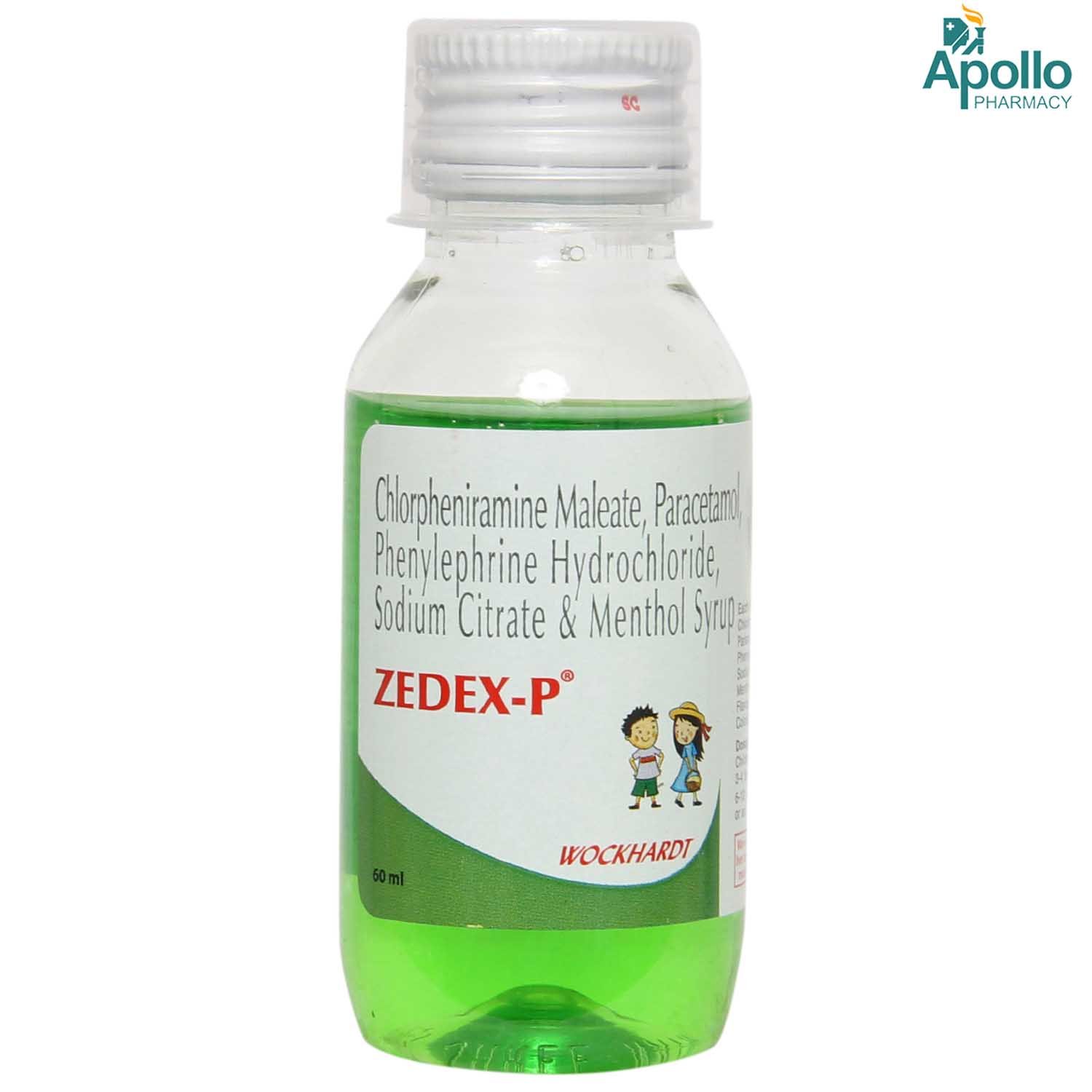
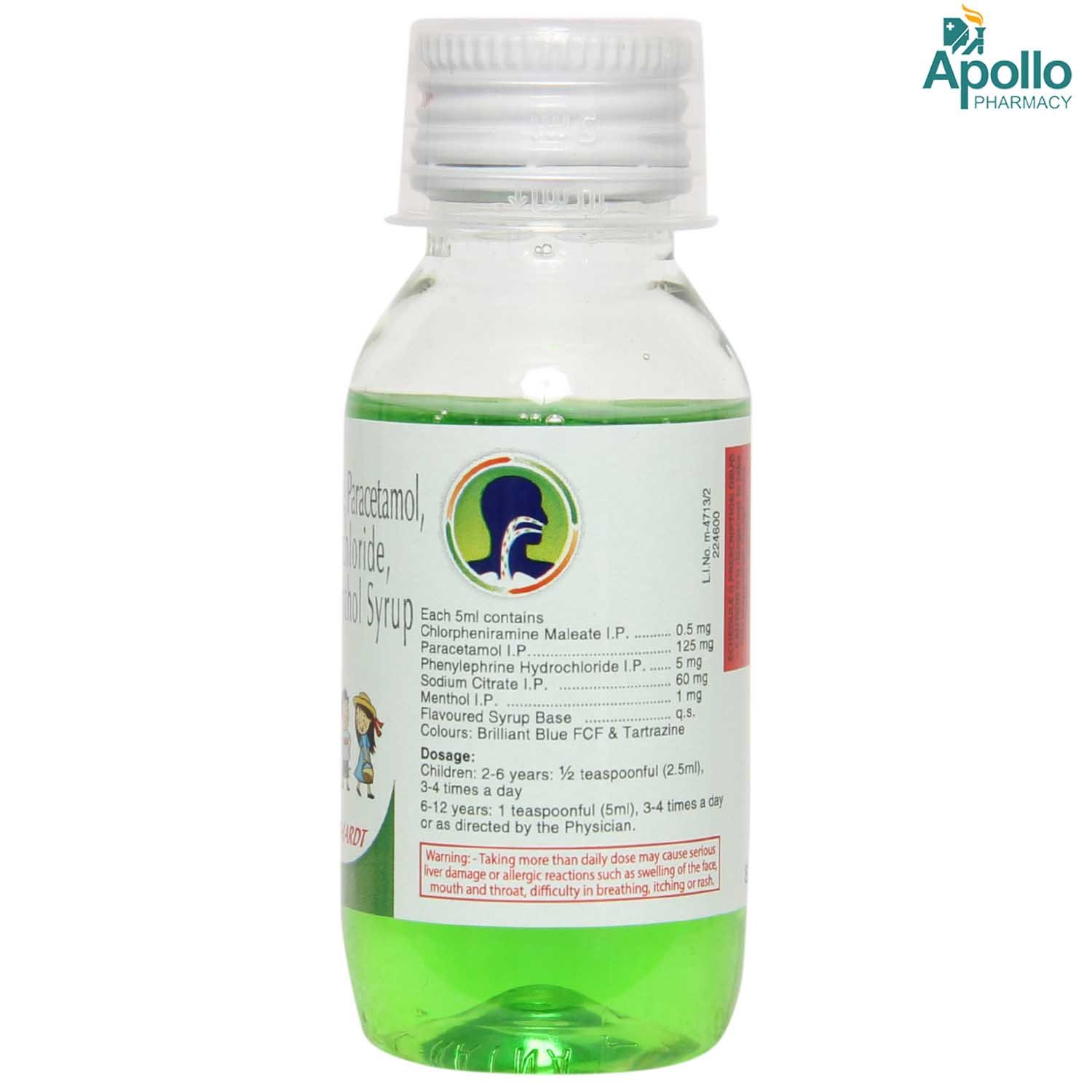
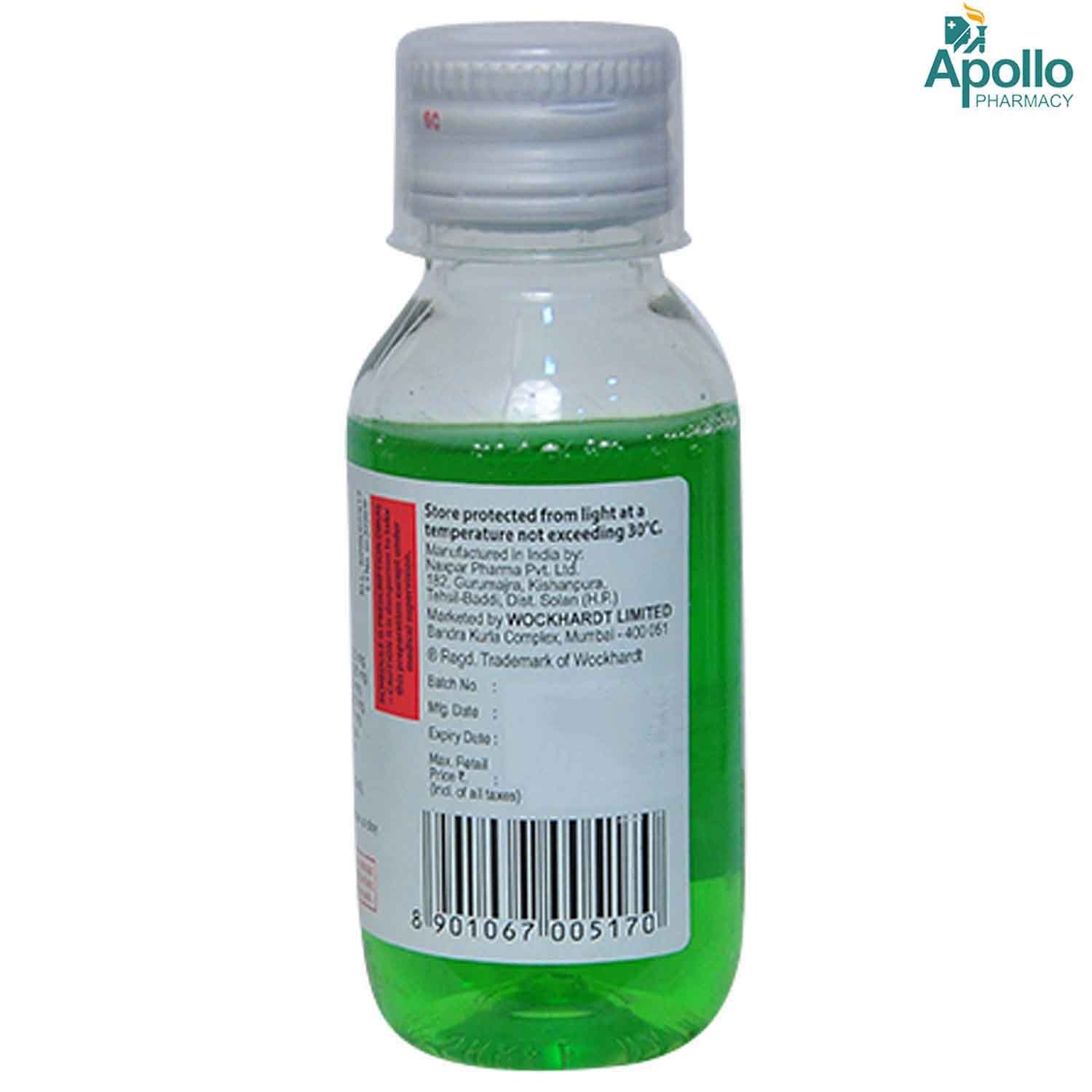




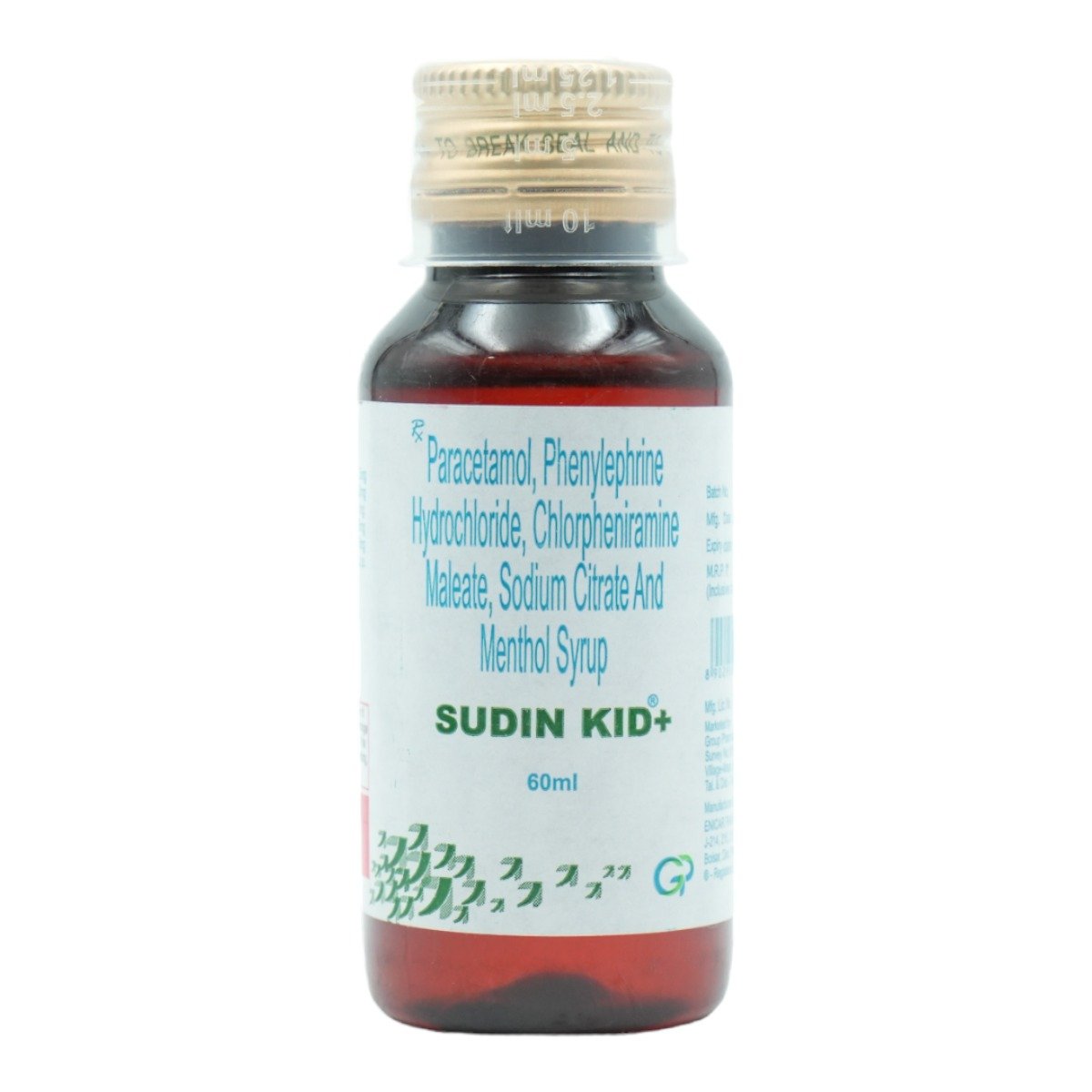
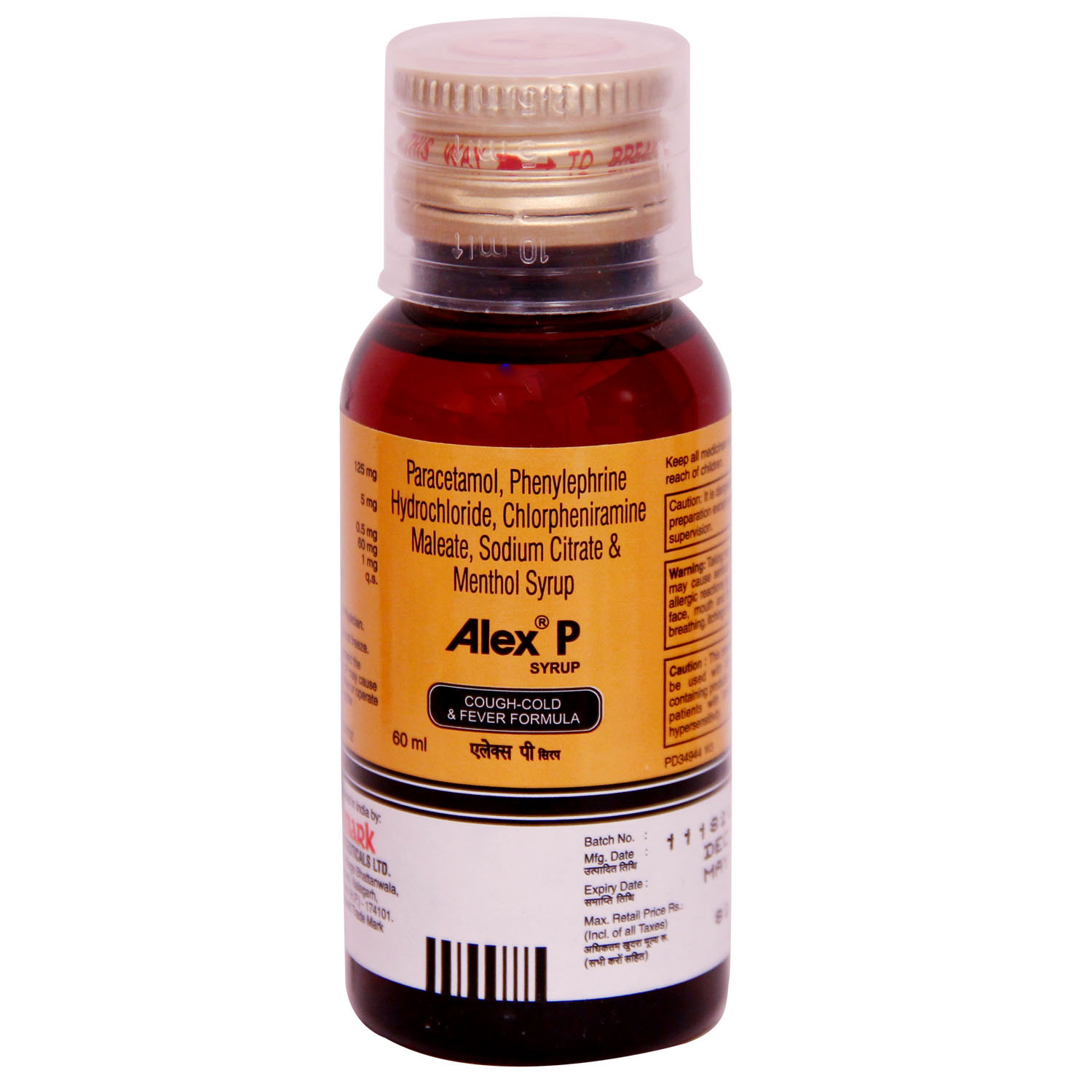


_0.jpg?tr=q-85)
